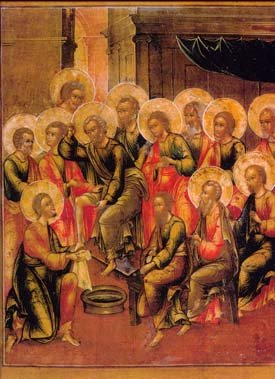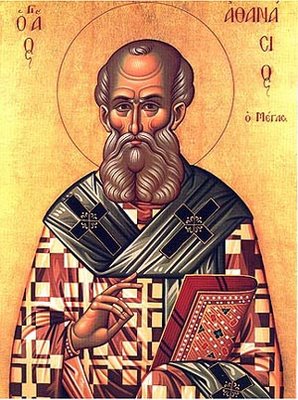Eastertide
Tomorrow is May Day. I'm not really sure what that is, but I think it has something to do with spring and I'm sure it's essentially a bourgeois strategy to appease the workers and peasants so as to further delay the inevitable uprising. In Oxford both town and gown celebrate the occasion by listening to the Magdalene Boys Choir greet the rising sun from the top of Magdalene tower at around 5pm. The students in the group then distinguish themselves by jumping off the bridge into very shallow water, thereby snapping many ankles. There were fifty injuries last year, so they're closing the bridge for the event. Which is funny, 'cause half the city has to cross the bridge to get to the other half.
Whatever.
I was invited to High Table by a classmate on Friday, and after a little time sitting around and chatting, made a couple of attempts to go dancing. I think this was pretty normal: we heard that Club A sucked that night, so we tried Club B and couldn't get in for some reason. After a few minutes at Club C (which a friend had recommended), we ended up spending most of the evening at Club A. Which was "Filth." Ahem.
I'm still terrifically jet-lagged; last time I dealt with that rather poorly. I woke up at 5, read for a couple of hours, took some NyQuil that Meagan gave me and watched DVDs waiting for it to take effect. But in the meantime I decided I really wanted a cup of coffee. This was a bad idea, so I decided to offset it by taking another dose of NyQuil. This was a much worse idea. I don't recommend doing any of that. This time, I'm just going to be more harsh regulating my sleep.
I have no interest in basketball, but I'm having a lot of fun with Brad and Patrick watching the game behind me:
I love basketball in any shape or form, so I'd watch the play-offs regardless. Watching Brad's team lose is just the icing on the cake.Okay, time for some linkage.
Theology and Spirituality
Peter has discovered Walter Rauschenbusch. If you're fascinated, check out my report from back in the day. He's also going to be my mentor. Be afraid.
To the Quiet: "Considering Silence" and "Solitude"
Peter White: "Homer Simpson, priest"
"If Jesus is my Lord, he cannot also be my boyfriend."Church History
Terry Mattingly discusses denial of the Armenian genocide, and makes the unavoidable Holocaust comparison: "The History That Dares Not Speak Its Name."
Hell, why don't we all just present that the Armenian genocide, the Holocaust, the Crusades, and the Muslim conquests of the Near East and of Spain just didn't happen so that we can all feel much better about ourselves?
The Way of the Fathers: "Light on the Dark Ages" and "Virgin Territory"
Get Religion: "Everyone Loves to Use the Word 'Glossolalia'"
Funny
Gladly Suffering Fools: "White House Announces New Secretary"
American Papist: "A Public Service Message"
Addison Road: "Be Informed About Your Safety!"
American Papist: "Why Ignatius Press Released a Hard Cover Edition of Deus Caritas Est"
American Papist: "Dancing iPope"












